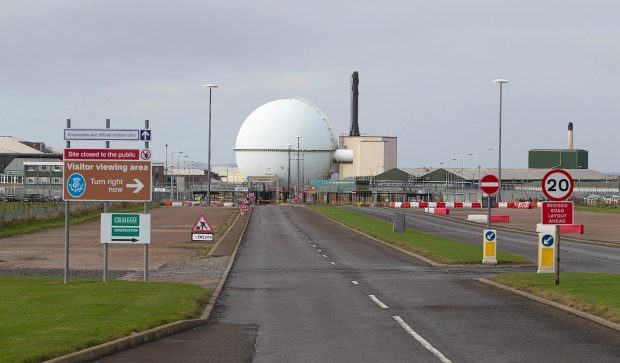A secret plan to ship nuclear weapons-grade uranium from Dounreay to the US has been condemned by a Highland anti-nuclear campaigner.
According to the Sunday Herald, the UK Government is preparing to transport 5kg of enriched uranium by sea to the US government’s nuclear power complex at Savannah River in South Carolina.
The uranium is contained in five research reactor fuel assemblies that were airlifted in emergency out of the former Soviet republic of Georgia in 1998 to prevent them being stolen and made into nuclear bombs.
The fuel was taken to Dounreay and has remained there ever since.
Earlier this year the US Nuclear Regulatory Commission issued a US nuclear transport company authorisation for a “one time shipment” of the fuel before 2016.
An NRC safety evaluation report said this was in the interest of US national security.
The Sunday Herald established this was the fuel that was taken from a reactor at a physics institute near Tbilisi, Georgia, in a secretive US operation in 1998, amid worries it would fall into the hands of Chechen gangs or Iran.
Russia and France refused to take the fuel, but the UK’s then Labour Prime Minister, Tony Blair, agreed.
Blair’s foreign minister at the time, Doug Henderson, said the majority of the fuel would be used to make medical isotope targets for cancer treatment, however most of the material is still stored at Dounreay.
The revelations follow concerns raised last week about the movement of waste materials from Dounreay to Sellafield by rail, after major flooding in Cumbria.
Yesterday Highland anti-nuclear campaigner, Tor Justad, said: “We campaign against all transport of nuclear waste from Dounreay down to Sellafield. We have heightened concerns about doing so either by sea or by air. Both are unacceptable.
“For years we have always said that terrorism and accidents are the two main factors why we have campaigned for all fuel to be kept on site.
“Wick Airport is a tiny airport and has none of the security measures used by larger airports, and I would say the same for Scrabster Harbour.”
The UK Government’s Nuclear Decomissioning Authority, responsible for overseeing the dismantling and disposal of nuclear operations, said any movement of material is “subject to stringent regulations.”
